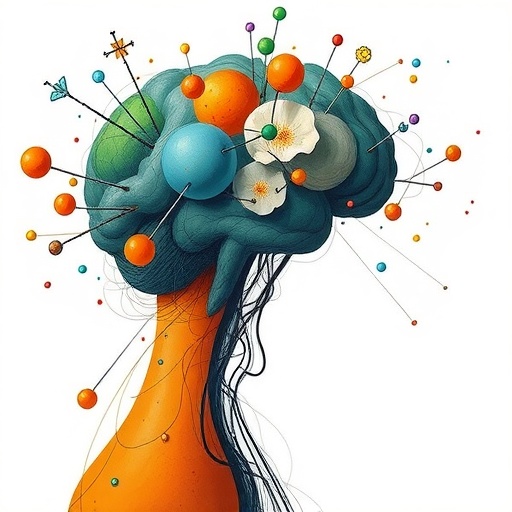In an era where mental health challenges are increasingly recognized as critical public health concerns, a groundbreaking systematic review sheds new light on rehabilitation models tailored for individuals grappling with complex psychosis. Published in BMC Psychiatry, the study rigorously examines a range of mental health rehabilitation approaches, offering nuanced insights into their relative effectiveness across diverse global contexts. This comprehensive investigation not only maps the landscape of existing models but also underscores the absence of a one-size-fits-all solution, highlighting the imperative for adaptable, biopsychosocial frameworks that can be tailored to local needs.
Complex psychosis presents multifaceted challenges that extend beyond symptom management to encompass social integration, personal recovery, and community functioning. Mental health rehabilitation services aim to address this intricate spectrum, supporting individuals in achieving meaningful lives within their communities. Yet, as this systematic review underscores, the diversity of rehabilitation models—and their varying levels of success—reflects the complexity of psychosis itself. The study’s authors embarked on an exhaustive search across six major databases, scrutinizing quantitative, qualitative, and mixed-method research published since 2000 to ensure an up-to-date synthesis of evidence.
The review ultimately identified 24 pertinent studies, each representing distinct models or defining features of mental health rehabilitation. Among these, seven key categories emerged: Strengths-Based, Goal-Oriented, Holistic Care, Community Rehabilitation in Low-Income Countries, Illness Management and Recovery Programs, Intensive Case Management, and Psychosocial Rehabilitation. These models, originating from diverse socioeconomic settings ranging from high-income countries like Australia and the United States to low-income nations including Ethiopia and India, embody a spectrum of theoretical underpinnings and practical strategies.
The Strengths-Based model, emphasizing individual assets and capacities rather than deficits, showed promise in fostering personal empowerment and resilience among service users. Conversely, Goal-Oriented approaches prioritize structured, measurable objectives that track progress in symptom alleviation and social skills acquisition. Holistic Care models integrate medical, psychological, and social interventions, aiming for comprehensive recovery that attends to the full complexity of human experience. Each of these paradigms reflects distinct philosophical commitments and operational challenges.
Importantly, the review highlights the substantial role community rehabilitation programs play within resource-limited settings. In low-income countries, where specialist services are scarce, community-driven models demonstrate innovative adaptations, leveraging local networks and culturally embedded support systems to facilitate rehabilitation. These programs often blend traditional healing practices with evidence-based approaches, illustrating the adaptability and cultural responsiveness that are critical to mental health interventions globally.
Illness Management and Recovery Programs, characterized by structured curricula designed to enhance self-management skills and reduce relapse rates, were evaluated for their utility across different populations. Meanwhile, Intensive Case Management models emphasize personalized, high-contact support, coordinating services to address multifaceted needs and prevent hospital readmissions. Psychosocial Rehabilitation, focusing on social skills training, vocational support, and life-skills development, rounds out the identified models.
Though many models demonstrated efficacy in discrete domains—such as symptom reduction, improved social functioning, or enhanced personal recovery—the review found no single model to be unequivocally superior. Variability in outcomes reflects contextual influences, methodological differences in study design, and variations in implementation fidelity. This finding underscores the necessity for flexibility in mental health rehabilitation, emphasizing that interventions must be adaptable to the cultural, economic, and infrastructural realities of diverse settings.
Clinically, these findings carry profound implications. For practitioners, policymakers, and service developers, the synthesis advises a balanced approach that integrates core biopsychosocial principles with local adaptability. The evidence suggests that rigid adherence to standardized models may be less effective than dynamic frameworks that can be molded to specific populations’ needs. Additionally, the findings draw attention to the importance of including service users’ perspectives in the design and evaluation of rehabilitation programs.
The review’s comprehensive scope and meticulous methodology offer a valuable resource for stakeholders invested in mental health recovery. By systematically delineating the strengths and constraints of various rehabilitation models, it fuels ongoing dialogue and innovation in the field. Furthermore, its global perspective enriches cross-cultural understanding, promoting knowledge exchange between high-income and resource-poor settings.
Future research directions advocated by this review include further exploration of the hybridization of models, integrating effective components from multiple paradigms to optimize outcomes. There is also a call for more rigorous, longitudinal studies to assess the sustainability of gains achieved through different rehabilitation approaches. The authors emphasize the pressing need for consensus-building around the essential features of a comprehensive biopsychosocial rehabilitation model, which remains elusive despite decades of research and practice.
This review, prospectively registered with PROSPERO in May 2024, embodies a milestone in mental health rehabilitation research. It invites the global mental health community to reflect critically on existing frameworks and encourages the development of nuanced, culturally sensitive, and evidence-informed rehabilitation services. Ultimately, it champions a future where mental health rehabilitation is not merely a theoretical ideal but a practical reality accessible to all individuals navigating the complexities of psychosis.
In sum, this systematic review presents a meticulously crafted synthesis of mental health rehabilitation models, emphasizing the complex interplay between efficacy, context, and implementation. It affirms that successful rehabilitation for individuals with complex psychosis demands both scientific rigor and compassionate flexibility. As mental health systems worldwide strive to evolve, this work lays a cornerstone for informed innovation, policy formulation, and person-centered care.
Subject of Research:
Mental health rehabilitation models for individuals with complex psychosis
Article Title:
Mental health rehabilitation models for people with complex psychosis: a systematic review
Article References:
Houngbedji, N., Dalton-Locke, C., Hughes, A. et al. Mental health rehabilitation models for people with complex psychosis: a systematic review. BMC Psychiatry 25, 812 (2025). https://doi.org/10.1186/s12888-025-07174-8
Image Credits: AI Generated
DOI:
https://doi.org/10.1186/s12888-025-07174-8




